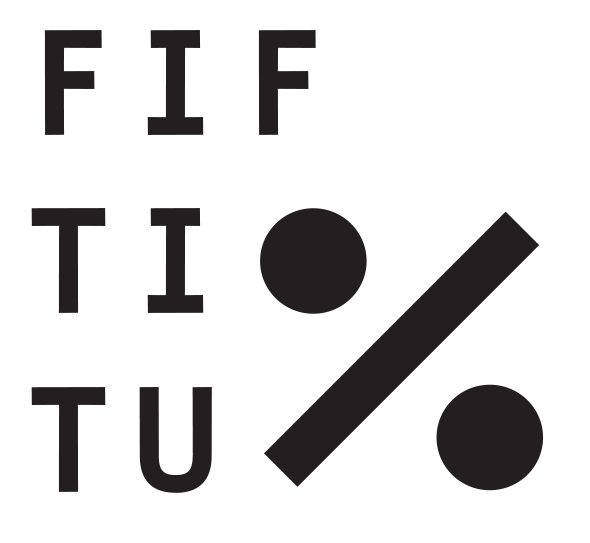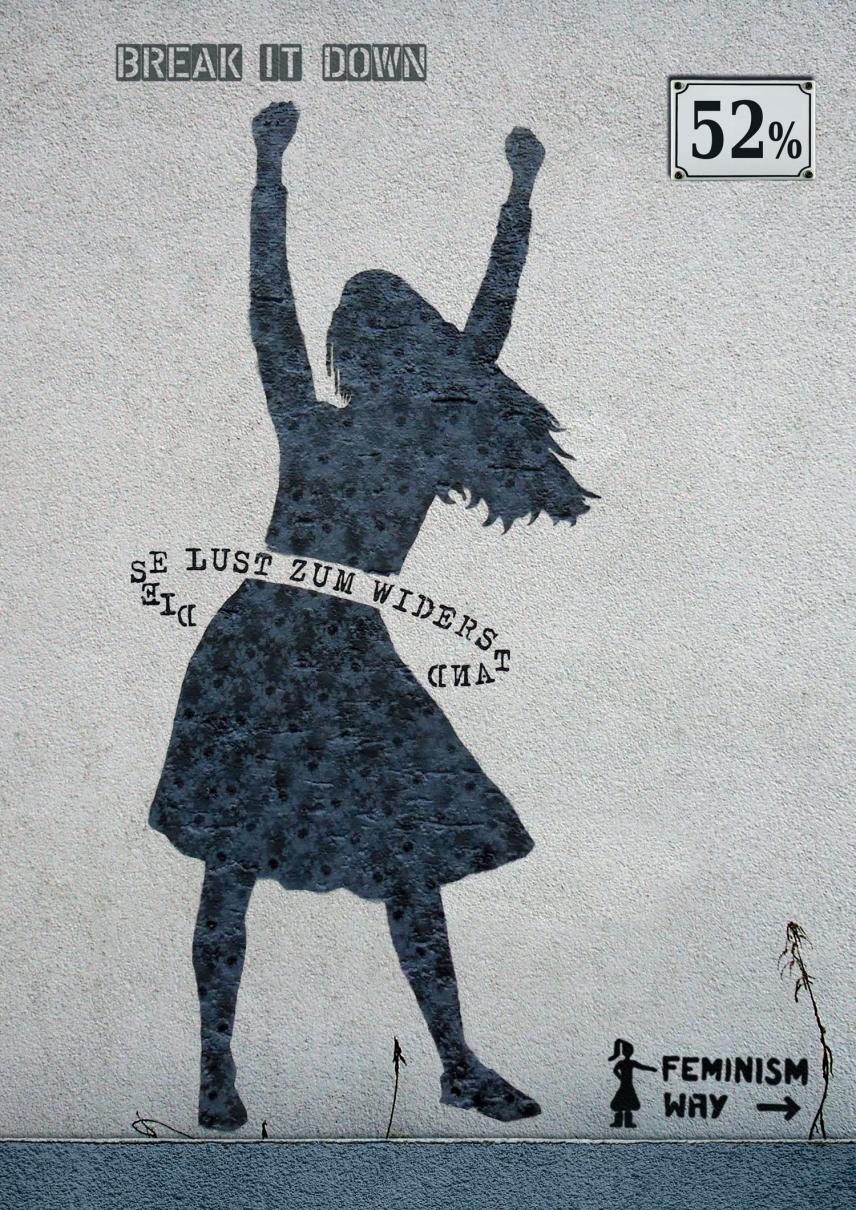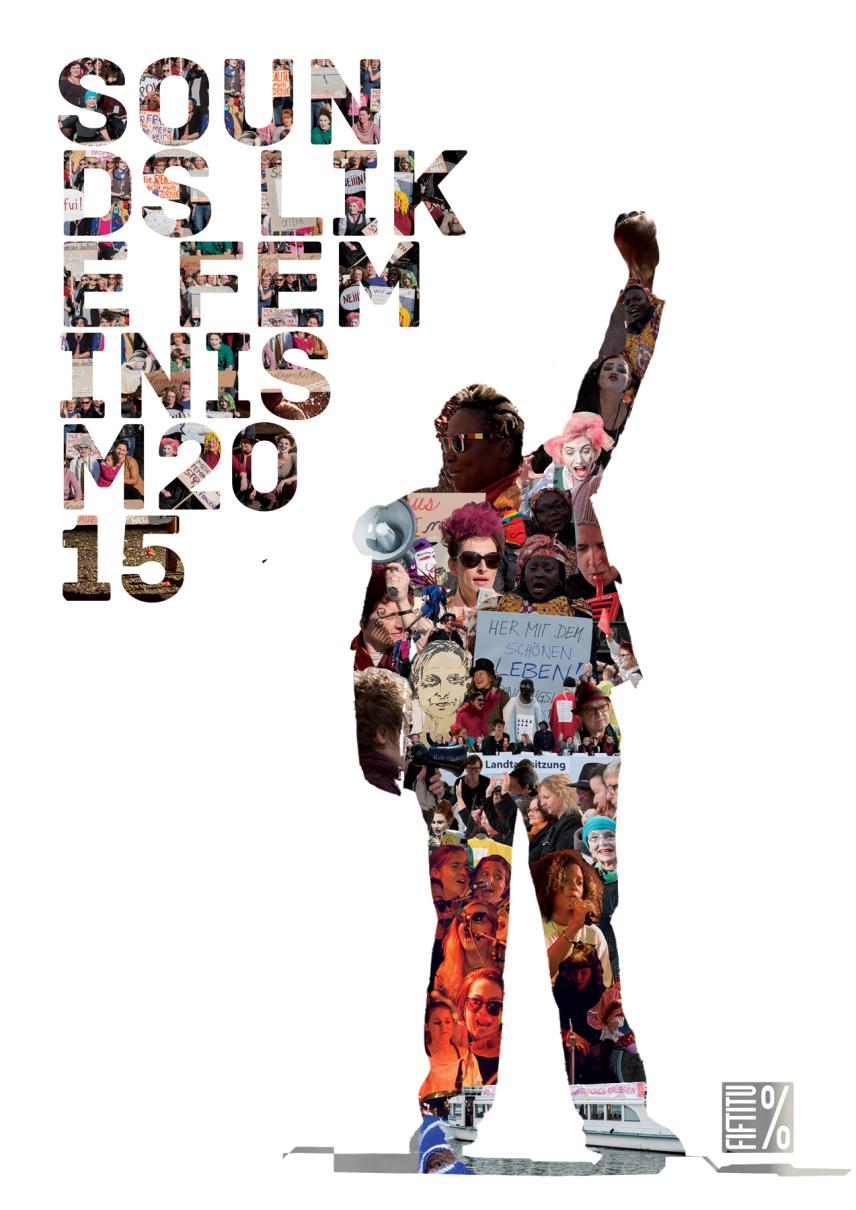The cooperation project between FIFTITU% and the Tricky Women Animation Film Festival has been showing animation film art by women* curated by Birgitt Wagner and Waltraud Grausgruber from Tricky Women in Upper Austria since 2017.
Breadcrumbs
Das Kooperationsprojekt von FIFTITU% und dem Tricky Women Animationsfilm-Festival zeigt seit 2017 AnimationsFilmKunst von Frauen* kuratiert von Birgitt Wagner und Waltraud Grausgruber von Tricky Women in Oberösterreich.
„The superficiality distances us from what is real, and generates suffering and violence through lack of respect, and lack of listening” (Nathalie Delay - Künstlerin)
2016 haben wir mit dem Jahresfokus Break it down versucht heteronormative Strukturen frontal anzugehen und aufzubrechen und eine Reinterpretation von Geschlecht, Sprache und Handeln zu forcieren. Break it down bezeichnet in diesem Sinn einen Prozess, der auch nach 2016 noch lange nicht als beendet bezeichnet werden kann. 2016 war jedoch sicher auch in einem globalen Kontext ein Jahr in dem vieles zusammengebrochen ist (Geopolitisch, Sozial,...)
"The superficiality distances us from what is real, and generates suffering and violence through lack of respect, and lack of listening" (Nathalie Delay - artist)
In 2016, with the annual focus Break it down, we attempted to tackle and break down heteronormative structures head-on and force a reinterpretation of gender, language and action. In this sense, Break it down refers to a process that is far from over, even after 2016. However, 2016 was certainly also a year in which many things collapsed in a global context (geopolitically, socially,...)
2017 our motto is getting closer!
FIFTITU% is offering fortnightly self-defense training for girls* and women* from 7 September. The training under the guidance of Xhejlane Rexhepi takes place under the motto "Setting your own boundaries". The focus is on instructions on how to protect yourself in order to recognize dangers early on and avoid them if necessary
.
In addition to physical training, which includes various effective self-defense techniques, psychological training will play a particularly important role. Because only by promoting self-confidence and the ability to call up situation-specific strategies within seconds can a self-determined demeanor be trained and thus reduce the risk of becoming a victim of violence.
FIFTITU% bietet ab 7. September vierzehntägig ein Selbstverteidigungstraining für Mädchen* und Frauen* an. Das Training unter Anleitung von Xhejlane Rexhepi findet unter der Maxime “Grenzen selbst bestimmen” statt. Im Mittelpunkt stehen Anleitungen um sich selbst zu schützen, um Gefahren frühzeitig zu erkennen und gegebenenfalls vermeiden zu können.
Interculturality is seen as a desirable goal for dealing positively with borders, or as a term to be criticized that cements borders. Little thought is given to intercultural women's policy. Feminist viewpoints on this burning issue also need to be developed. On the one hand, local perspectives and ways of thinking need to be exchanged and taken seriously and, on the other hand, the "differences within" must not be neglected The exchange of different systems of thought and knowledge is required, as well as a permanent shifting of views that have become dear.
Interkulturalität wird als erstrebenswertes Ziel angesehen, um mit Grenzen positiv umzugehen, oder als zu kritisierender Begriff, der Grenzen zementiert. Über interkulturelle Frauenpolitik wird kaum nachgedacht. Auch feministische Standpunkte zu diesem brennenden Thema gälte es zu entwickeln. Hierzu müssen einerseits lokale Sicht- und Denkweisen ausgetauscht und ernst genommen werden und andererseits darf die "Differences within" nicht vernachlässigt werden Der Austausch verschiedener Denk- und Wissenssysteme ist gefordert, sowie eine permanente Verrückung lieb gewordener Sichtweisen.
"Sprache als Medium repräsentiert und transportiert Geschlechterbinarität. Dabei wird das Geschlechterverhältnis durch das Wahrnehmen von (Geschlechter)Wahrnehmung konstruiert" (Luhmann 1997: 207).
"Language as a medium represents and transports gender binarity. The gender relationship is constructed through the perception of (gender) perception" (Luhmann 1997: 207).
Our daily language shows an absence of people who live in non-binary systems, or who identify themselves as non-binary and thus fall out of the category of the so-called "normal".
They cannot or do not want to meet the requirements of heteronormativity. Heteronormative language produces and fixes injustice. It standardizes behaviour and social expectations in relation to heterosexuality and belonging to a strict gender binary. And this necessarily implies oppression.
“As we tell[hear] stories about the lives of others, we learn how to imagine what another creature might feel in response to various events. At the same time, we identify with the other creature and learn something about ourselves.”
[Martha C. Nussbaum]
"As we tell[hear] stories about the lives of others, we learn how to imagine what another creature might feel in response to various events. At the same time, we identify with the other creature and learn something about ourselves."
[Martha C. Nussbaum]
Austria concluded a recruitment agreement with Turkey in 1964 and with the former Yugoslavia in 1966 in order to recruit workers. "Guest workers" came and stayed. In the 1990s, the collapse of Yugoslavia brought in numerous refugees who also stayed. Within the "foreign" resident population, the largest group (37.7 percent) comes from the countries of the former Yugoslavia. [http://www2.land-oberoesterreich.gv.at] Around 48% of these are women*.
Women* who make music are still largely defined in the following order: first as women* and then as musicians*. Pop music is still dominated by men*, as shown by the SR Archive of Austrian Popular Music, which this year analyzed the database it has built up over two decades.
Frauen*, die Musik machen, werden größtenteils immer noch in der Reihenfolge definiert: zuerst als Frau* und dann erst als Musiker*in. Popmusik ist nach wie vor männlich* dominiert, das zeigt das SR Archiv österreichischer Popularmusik, das heuer seine über zwei Jahrzehnte aufgebaute Datenbank analysiert hat.
The GIRLS ROCK CAMP is over.
Seventeen participants, six of whom did NOT play a musical instrument before the camp, came from Vienna, Lower Austria and Upper Austria and formed 4 BANDs with stunning names: "La Sabotage", "Fox Fatal", "Grandma's Three Words", "Page 13"
Video of the final evening NOW ONLINE - Design DORF-TV
DORFTV - broadcast - created at the camp by the participants
Radio FRO - special report on GirlsRockCamp with interviews with the participants
Das GIRLS ROCK CAMP ist zu ENDE.
Siebzehn Teilnehmer_innen, sechs von ihnen haben KEIN Musikinstrument vor dem Camp gespielt, sie kamen aus Wien, Niederösterreich und Oberösterreich und haben 4 BANDs gegründet mit den umwerfenden Namen: "La Sabotage", "Fox Fatal", "Grandma's Three Words", "Page 13"
Video vom Abschlußabend JETZT ONLINE - Gestaltung DORF-TV
DORFTV - Sendung - gestaltet am Camp von den Teilnehmer_innen
Schifffahrt auf der St. Nikolaus am 27.Juni 2015
Eine Fotostrecke der Schifffahrt 2015 hat Petra Moser für uns geknipst.
Auch DORFTV war dabei. Die Expert*innen der Schifffahrt Nicola Abler-Rainalter, Iris Kästel und Martha Egger gaben Auskunft zu den Gesprächsrunden in der Vorrunde. Link zum Expert*innengespräch. (55min)
Cruise on the St. Nicholas on June 27, 2015
A photo gallery of the 2015 cruise was snapped for us by Petra Moser.
DORFTV was also there. Shipping experts Nicola Abler-Rainalter, Iris Kästel and Martha Egger provided information on the preliminary round of talks. Link to the expert talk (55min)
Jerneja Zavec has put together a sound collage of the boat trip for us. Sound collage (16min)
- First page
- Previous page
- 1
- 2
- 3
- 4
- 5
- 6
- …
- Next page
- Last page









